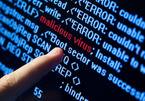 |
At the annual International Conference and Exhibition Vietnam Information Security Day last week, Minister of Information and Communication Nguyen Manh Hung emphasised the role of cybersecurity in this front.
“In addition to focusing on digital transformation, it is necessary to build up a capable workforce specialised in cybersecurity and also constantly update latest tech aiming to better protect the national cyberspace,” said Hung.
Stimulating digital transformation has put Vietnam at risk to cyberspace dangers. According to data published by Russian cybersecurity multinational Kaspersky, more than 1.6 million cyberattacks over the first half of 2020 targeted small- and medium-enterprises in Southeast Asia. Indonesia, Malaysia, and Vietnam experienced the largest number of attacks.
Yeo Siang Tiong, general director of Kaspersky in Southeast Asia, said that the rise in such attacks has skyrocketed since March when COVID-19 reached its first peak and the entire country was in social distancing.
“Cybercriminals took advantage of the chaos to perform non-technical attacks such as fraud via sending e-mails,” said Tiong. “By attaching coronavirus-realted topics to messages, the rate of clicking on attachments containing malware sharply increased from that time.”
Over the first nine months of 2020, Vietnam ranked 18th in the number of cyberattacks. In the first quarter of this year, the country saw about 838 attacks. In the second and the third quarter, the number soared by 27.3 per cent and 7.5 per cent on-year, respectively, according to local security company CyStack.
Realities have demanded the nation quickly improve in this area, aiming to better favour the National Digital Transformation Programme to 2025.
Ha The Phuong, deputy CEO and information security service director at CMC, said that enhancing security in healthcare and education is playing the most important role because the sectors are given priority to be digitalised.
“Improving the security of healthcare, education, or any segment should be based on first classifying data based on its nature into categories that can be shared with the public and sensitive information that can only be shared with users of certain credentials, among others,” said Phuong.
In addition, Do Lap Hien, deputy director at E-government Centre of the Authority of IT Application under the Ministry of Information and Communications, added that the government has put the website data.gov.vn into operation for years to share information inside ministries and with the public. However, it remains a work in progress and offers limited functionality.
“The initial design of the website was to provide and share data within the local government,” Hien said. “Afterwards, we added the function of providing open data for businesses and local people. We are completing the function.”
According to information published at the conference, healthcare and education are the two most-targeted sectors for cyberattacks.
For healthcare, protecting patient databases has been a major concern for most hospitals. Meanwhile, protecting children from harmful content while they use learning documents online has been a major concern for parents. According to data published by MobiFone, last year nearly 200,000 children were attacked on the internet, much higher than the 2018 estimate of just under 45,000.
Despite the soaring number of cybersecurity services providers, there are a tiny number of individuals and organisations satisfied with the related solutions offered by companies, according to the Vietnam Software and IT Services Association. VIR
|
Nguyen Lam Thanh - Head of Public Policy, TikTok Vietnam Over the years, we have entered into cooperation with local authorities and security experts to develop the gear of public standards for TikTok. Now, we are collecting commendations to build up the standards and will soon launch them. That is necessary for Vietnam where the government has been researching and developing standards for social networking sites. Regarding management, TikTok has the feature of neutralising messages for children under 16 years of age. With this feature, users are able to receive or not receive messages, or only receive them from their friend list. Moreover, users can manage the content of what they view or comments on what they post. With the function, they can eliminate harmful content or negative comments.
|
By Van Anh

Cybersecurity powerhouse and Vietnam’s digital trust
By developing Make in Vietnam cybersecurity products on the basis of open platforms, technology firms will be able to create 'digital trust' among consumers.

Vietnam aims to become cybersecurity powerhouse
The Authority of Information Security (AIS) has reported impressive results in ensuring information security, but stressed that cyberattacks have become increasingly dangerous and sophisticated.